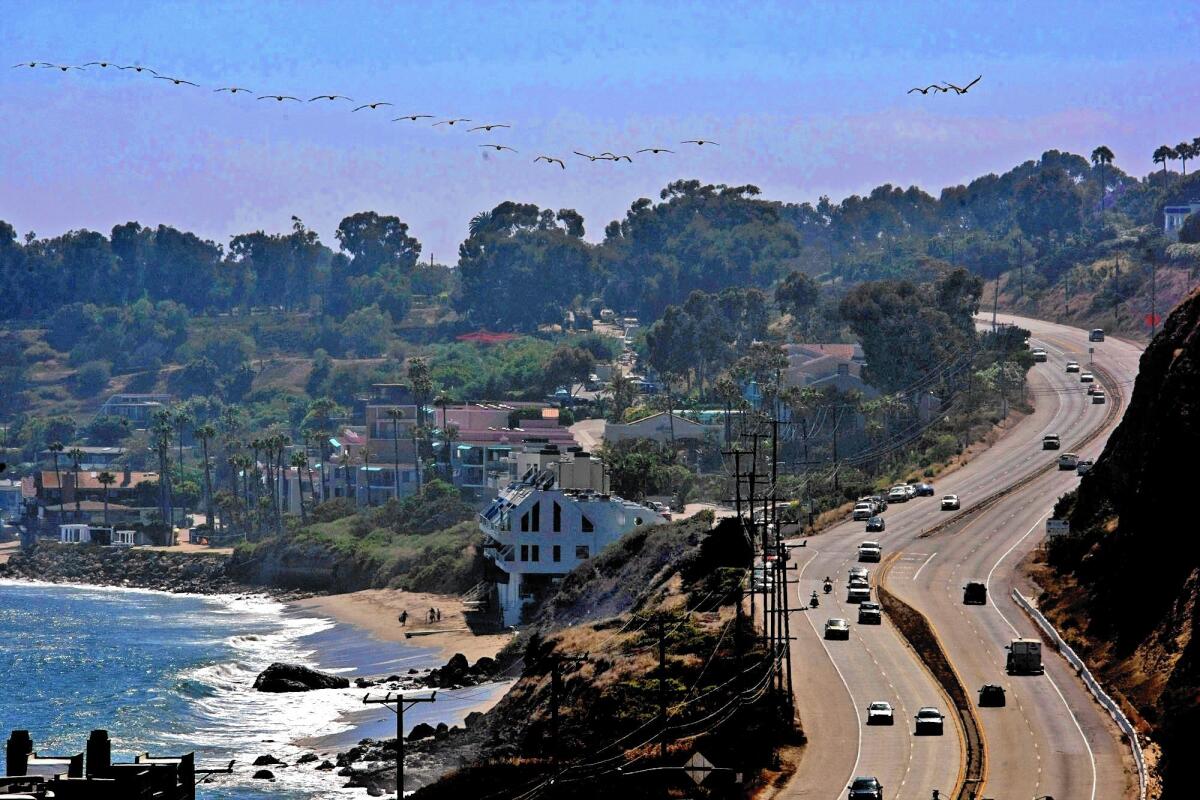Judge overrules Malibu voters, clearing the way for Whole Foods shopping center

Malibu residents made it clear last year how they felt about chain stores and large-scale commercial developments. They approved the “Your Malibu, Your Decision” initiative with 59% of the vote.
Measure R — with the stated aim of preserving the coastal city as a “unique oasis in the midst of urban and suburban sprawl and generic development” — set its sights on “formula retail,” or chain stores.
It limited their footprint to 30% of any shopping center and required each new chain store to get a nontransferable conditional-use permit. It also required that detailed plans for every proposed commercial or mixed-use project over 20,000 square feet be put before voters.
Just last month, voters rejected such a plan for developer Steve Soboroff’s project in the Civic Center area. Fifty-seven percent gave a thumbs-down to the Park at Cross Creek — a 38,425-square-foot commercial shopping center anchored by a 24,000-plus square-foot Whole Foods Market.
Power to the people, or so it seemed, until a state judge ruled Tuesday that Measure R was unlawful.
The Park at Cross Creek and another developer, Malibu Bay Co., had filed a suit in January asking that the law be tossed out. The matter bounced from federal to state court, to L.A. Superior Court Judge James Chalfant.
In a 23-page ruling, Chalfant expressed sympathy for Measure R’s goals. Residents, he wrote, “wanted to preserve the community’s small-town and rural character.”
But he also said that they hadn’t gone about doing so the right way.
Some of the measure’s provisions fell outside the jurisdiction of an initiative, usurping the city of Malibu’s administrative role, he wrote.
And requiring chain stores to get nontransferable conditional-use permits based on who they are rather than what they do is contrary to state law,
Join the conversation on Facebook >>
“A fast-food use by McDonald’s is the same as a Burger King, and a coffee shop use by Starbucks is the same as Peet’s,” he wrote. “But Measure R would prevent a [conditional use permit] transfer between such chain stores. This ... is unlawful.”
Actor and director Rob Reiner, who lives in Brentwood but owns a home in Malibu and led the fight for Measure R, said that while the will of the people was clear, the ruling “essentially strips the Malibu voters of their ability to have any say over future development.”
“Obviously, we’re very disappointed,” he said.
City officials, Reiner said, should respond by enacting strict regulations to fill the void.
Malibu City Atty. Christi Hogin alluded to such a possibility.
“There’s still plenty of ways that the city can be involved in planning and in governing,” she said.
Measures aside, the Park at Cross Creek already has city approval. If the ruling stands — and there are no big changes when Chalfant signs his final judgment next month — nothing is barring the project from moving forward, Hogin said.
Soboroff declined to comment on the ruling.
Twitter: @latimescitybeat
ALSO
Handling of L.A. schools shutdown offers a civics lesson
Sumner Redstone is ‘a living ghost,’ ex-girlfriend’s lawsuit says
San Bernardino shooter was a Pakistani who became known as a ‘Saudi girl’
More to Read
Sign up for Essential California
The most important California stories and recommendations in your inbox every morning.
You may occasionally receive promotional content from the Los Angeles Times.











